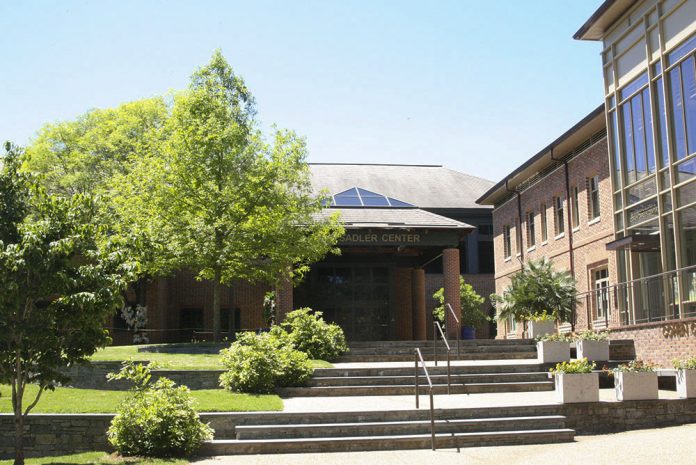Tuesday, Nov. 5, members of the College of William and Mary community came together in the Sadler Center’s Commonwealth Auditorium to attend a roundtable discussion entitled “The Crisis of Global Liberalism in Open Societies.”
The discussion, which was led by Vice Provost for International Affairs Steve Hanson, focused on the current state of global liberalism.
Joining Hanson were Barnard College political science professor Sheri Berman, Turkish studies professor at Stockholm University Jenny White, and political science professor at University of California, Berkeley Michael Steven Fish.
The event was organized by Reset DOC and Reset Dialogues in partnership with the College as a concluding note to their broader conference pertaining to liberalism.
Hanson opened the discussion by asserting that the global liberal system is falling apart. According to Hanson, the global order is at risk.
He cited Weber’s Three-component theory of stratification to explain the way in which global liberalism has broken down and noted the three primary ways of organizing political power: traditional patrimonial means, rule of law and leaders’ charisma.
Hanson said that rational legal leaders, who the global liberal order use to organize their power, are losing to charismatic leaders around the world.
Although she agrees there is declining support for liberal democracy around the world, Berman hesitated to call the phenomenon a “crisis”.
“The term crisis … indicates not only that the problem is serious, but that it might be on some level unprecedented,” Berman said. “The types of approaches we take to our problems will depend partially on how severe we think the problems actually are.”
“The term crisis … indicates not only that the problem is serious, but that it might be on some level unprecedented,” Berman said. “The types of approaches we take to our problems will depend partially on how severe we think the problems actually are.”
Berman noted many explanatory factors in the public’s declining faith in global liberalism. Economic challenges, social and cultural factors, a lack of working-class representation in politics and unresponsive governments all help explain the public’s qualms with the liberal status quo.
“We may be experiencing today is one of those cycles where things are out of whack but hopefully where liberal democracy will be able to recalibrate,” Berman said.
Fish brought up alternative explanations for global liberalism’s contemporary struggles. Fish began by echoing Berman’s sentiment that global liberalism is not in a full crisis.
He argued that waning economies, rising inequality, social tensions and immigration do not explain declines in global liberalism’s success.
“It’s not the economy,” Fish said. “We’re looking in all the wrong places. Liberal politicians are losing ordinary people because they no longer make sense to them as defenders of national interest.”
Fish said that illiberal leaders are gaining momentum because they have cast themselves as more nationalistic and patriotic than traditionally liberal leaders.
According to Fish, the solution to the global liberal question lies in the fundamental values that liberals and their leaders as a whole project to their constituents.
Thus, the liberal strategy, Fish noted, would be to revamp the image that liberals have in the hearts and minds of the public.
White drew upon her expertise in Turkish politics and history to inform her view on the status of global liberalism.
Protests by citizens who are unsatisfied by their government have become increasingly common throughout the country, and Turkish dissatisfaction is indicative of these larger trends.
“[In Turkey], people just have absolutely no recourse whatsoever except to go out on the street and going out on the street,” White said. “The government has to somehow listen to the people for any kind of stability to recur.”
“[In Turkey], people just have absolutely no recourse whatsoever except to go out on the street and going out on the street,” White said. “The government has to somehow listen to the people for any kind of stability to recur.”
Following the talk, Nathan Liu ’22 said that he enjoyed listening to Fish challenge preconceptions about liberalism.
“It was really interesting listening to Dr. Fish, especially how he challenged our assumptions about why liberalism may be hesitating,” Liu said.
Cara Burrell ’22 was happy to attend the talk, given its news-relevant topic.
“I’m glad the school is having this kind of talk because this topic is relevant and we don’t totally understand it,”Burnell said.

